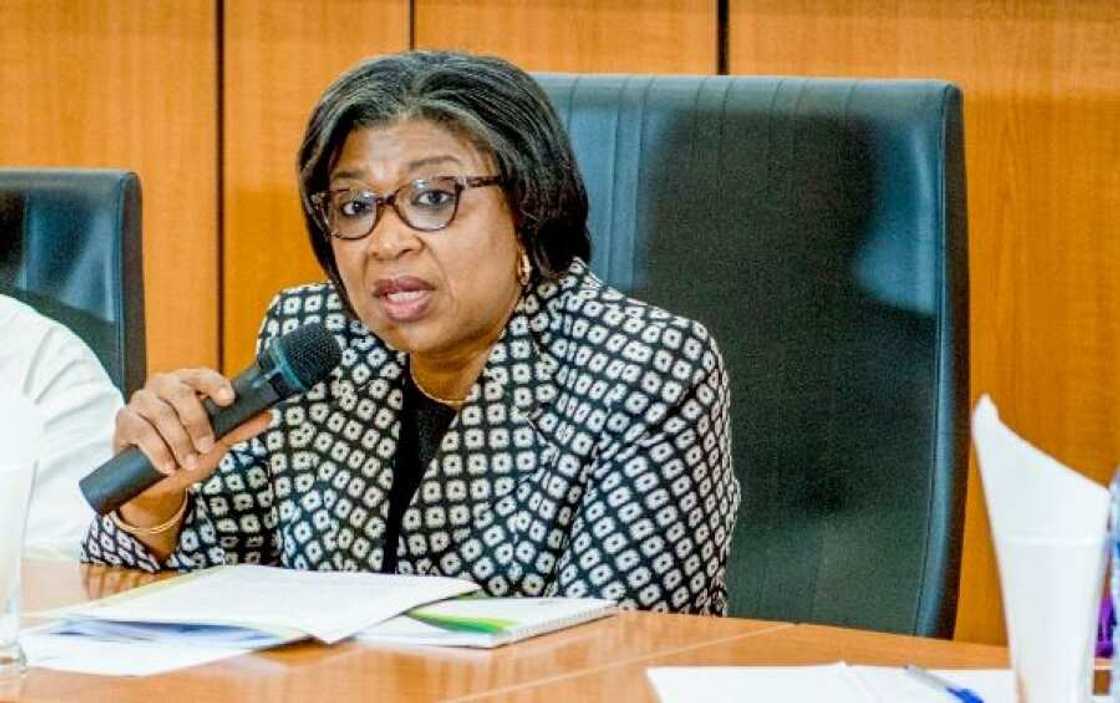Why Nigeria Cannot Stop Borrowing, Says Debt Management Office
- The Nigerian government cannot stop borrowing because of recurring budget deficit, according to Debt Management Office (DMO)
- Patience Oniha the Director-General of DMO stated that debt to GDP ratio stands at 71 per cent as of 2021
- She said that the reason the Nigerian government is taxing VAT on electronic bank transfers is to shore up the revenue to GDP to 15 per cent by 2025
PAY ATTENTION: Click “See First” under the “Following” tab to see Legit.ng News on your Facebook News Feed!
DMO, the Debt Management Office has stated the reason Nigeria cannot stop the borrowing spree it embarked upon since the inception of the Buhari administration, 7 years ago.
According to the Debt monitoring and maintenance agency, increasing government debt is due largely because of budget deficit over the years.

Source: UGC
The Director-General of DMO, Patience Oniha stated this in an interview with the News Agency of Nigeria (NAN) on Friday, April 1, 2022.
Oniha stated that the diversifying the economy and shore up productivity will let the federal government bring down its dependence on borrowing to fund the budget.
Do you have a groundbreaking story you would like us to publish? Please reach us through info@corp.legit.ng!
The ratio of debt to revenue very poor
She said that the government is thinking of ways to shore up its revenue base to ease the debt burden, emphasizing that the budget deficit is responsible for continued borrowing, according to a report by Nairametrics.
The DMO chief said that debt to revenue ratio was at 71 per cent as of 2021. She said it is high because the country has been borrowing for a long time.
Oniha said there will be little resources left to finance government activities if so much money is spent on servicing debts, saying the debt stock will keep increasing.
The country has not had budget surplus, only deficit since 201o, she said.
Why government is taxing electronic bank transfers
Nigeria has an infrastructure deficit that needs to be fixed in order to create jobs and attract private sector investment and increase the GDP, Oniha said.
She stated that Nigerians should understand that the federal government has a low revenue base that is exacerbated by the fact that the country basically a mono-economy.
According to the DMO boss, the recent Finance Act and the Strategic Revenue Initiative drive by the Nigerian government is to at increasing revenue to GDP close to 15 per cent by 2025 by taxing electronic bank transfers and ending unnecessary spending by revenue-generating agencies of government.
Odinkalu: Nigeria's public debt profile has tripled in 7 Years
Legit.ng has reported that Rights activist, Chidi Odinkalu, has said Nigeria’s debt profile has increased three times in the last seven years, that is since Muhammadu Buhari mounted the saddle as Nigeria’s president.
Odinkalu said this in a tweet but did not expatiate as he only provided an undated chat from the Nigeria Bureau of Statistics (NBS).
Odinkalu may not be an economist but available data from Debt Management Office (DMO) says Nigeria’s debt profile has soared to about N35.65 trillion recently because of increased borrowing by Buhari's government.
Source: Legit.ng


